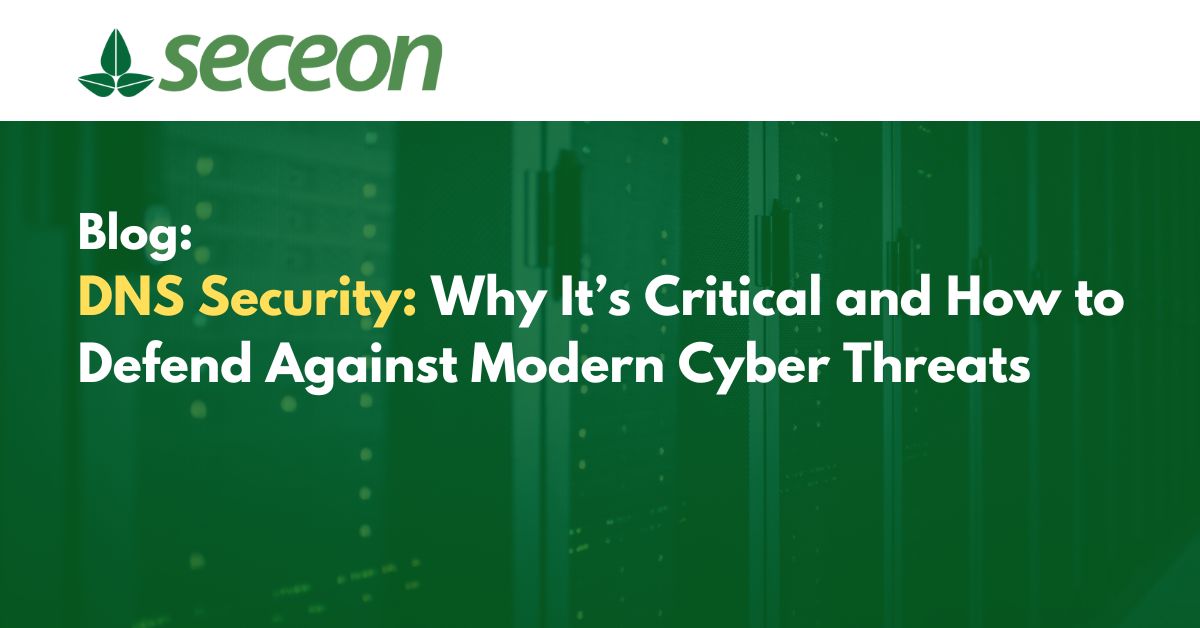
Every time you visit a website, stream a video, or send an email, the Domain Name System (DNS) is quietly at work behind the scenes. Often described as the “phonebook of the internet,” DNS translates human-friendly domain names like example.com into machine-readable IP addresses.
However, despite its fundamental role in internet communication, DNS was not designed with security in mind. Cybercriminals have capitalized on this vulnerability, making DNS security an urgent priority for modern organizations. With threats such as DNS hijacking, cache poisoning, and tunneling becoming increasingly common, securing your DNS infrastructure is no longer optional—it’s essential.
DNS security refers to the technologies, protocols, and practices that protect the DNS infrastructure from cyberattacks and misuse. A secure DNS helps prevent:
By implementing DNS security solutions, organizations can safeguard both their digital assets and their users from a wide array of cyber threats that exploit DNS weaknesses.
Understanding the risks associated with unsecured DNS is the first step in building a strong defense. Below are some of the most prevalent DNS-related threats:
Attackers modify DNS settings to redirect users to fraudulent websites, often for phishing or credential theft.
This technique allows attackers to exfiltrate sensitive data or maintain command-and-control channels by encoding it into DNS queries and responses.
Malicious actors corrupt DNS cache data, redirecting legitimate traffic to fake or malicious IP addresses.
Overwhelming DNS infrastructure with excessive requests can take down critical services and websites, causing widespread disruption.
Cybercriminals register similar-looking domains or compromise subdomains to impersonate legitimate entities and trick users.
DNS is involved in nearly every transaction on the internet. That makes it a high-value target for attackers and a powerful layer of defense for security teams. Here’s why DNS security is mission-critical:
Modern cybersecurity strategies are shifting from traditional perimeter defense to Zero Trust Architecture (ZTA)—a model that assumes no user or device is trusted by default, even inside the network.
DNS security plays a vital role in Zero Trust by:
Organizations that integrate DNS security into their Zero Trust frameworks gain deeper visibility and stronger controls over their network activity.
At Seceon, we understand that DNS is not just a functional component—it’s a potential attack vector that must be proactively secured. Our aiSIEM™ and aiXDR™ platforms integrate real-time DNS traffic monitoring, threat correlation, and automated response mechanisms to deliver full-spectrum DNS protection.
Key capabilities include:
With Seceon’s unified security platforms, your organization can address DNS threats before they escalate into breaches.
To strengthen your DNS security posture, follow these actionable best practices:
Implement DNSSEC (Domain Name System Security Extensions) to authenticate DNS responses and prevent spoofing.
Use a SIEM or XDR platform to analyze DNS traffic continuously. Look for anomalies like frequent NXDOMAIN responses or unusual domain lookups.
Restrict access to known malicious or suspicious domains using threat intelligence-based DNS filtering.
Segment your DNS infrastructure to limit the scope of attacks and prevent lateral movement.
Limit who can modify DNS settings or records and regularly audit access controls.
These are often used by attackers for hosting malicious content or maintaining C2 channels.
As attackers grow more sophisticated, so must our defenses. Emerging technologies like encrypted DNS (DoH/DoT) and AI-driven threat detection are transforming how we approach DNS security.
However, these innovations must be part of a broader security strategy that includes:
DNS security is not a one-time setup—it’s a continuous, adaptive process. And Seceon is committed to helping organizations of all sizes stay ahead of evolving DNS-based threats.
The integrity of your DNS protection infrastructure directly impacts the security of your digital operations. In an age where cyberattacks are becoming more stealthy and frequent, securing DNS is a non-negotiable part of any serious cybersecurity strategy.
By understanding the risks, implementing modern defenses, and leveraging intelligent platforms like Seceon’s aiSIEM™ and aiXDR™, organizations can turn DNS from a vulnerability into a strategic advantage.
Protect Your DNS. Protect Your Business.
Get in touch with Seceon today to learn how our AI-powered cybersecurity solutions can help you fortify your DNS layer—and your entire digital ecosystem.
👉 Schedule a demo or contact our team for a free security consultation.
